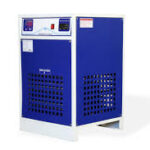Air Cooled Chillers
Air-cooled chillers dissipate heat from the refrigerant into the air through condenser fans, reducing the need for external cooling systems. Unlike water-cooled chillers, which require ongoing water treatment and maintenance
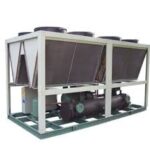
Water Cooled Chillers
Water-cooled chillers dissipate heat through a water-cooled condenser, ensuring effective temperature control. They are widely used in industrial plants and large commercial buildings.
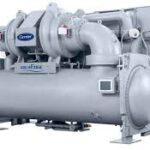
Screw Chillers
Screw chillers operate using oil-injected screw compressors, ensuring optimal cooling. They are widely used in HVAC and industrial processes. These systems are known for their durability and efficiency.
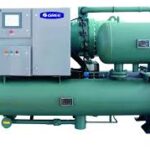
Variable Speed Chillers
Variable speed chillers use VFD-driven compressors that adjust speed according to cooling demand. This minimizes energy waste while ensuring optimal performance they are ideal for energy-conscious
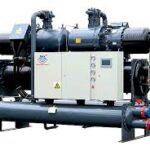
Oil Chiller
Oil chillers use refrigeration technology to maintain oil temperature within safe limits. They enhance machine performance by preventing thermal damage. These chillers are crucial for industrial processes.
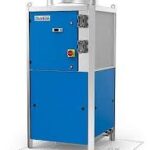
Hydraulic Oil Chiller
Hydraulic oil chillers maintain stable temperatures for hydraulic oil in industrial systems. They help prevent overheating and viscosity loss. Proper cooling extends machine life and enhances efficiency.
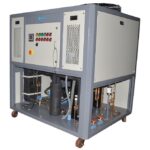
Online Chiller
Online chillers are designed for continuous cooling with internet-enabled control. They allow remote monitoring of temperature and system status. This improves efficiency and reduces maintenance needs.
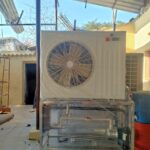
Glycol Chiller
Glycol chillers provide efficient cooling using a glycol-based coolant. They are ideal for temperature-sensitive applications like breweries, wineries, and food processing. Consistent cooling ensures process stability.
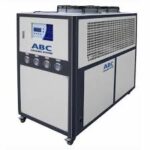
Spindle Chiller
Spindle chillers help control heat in CNC spindles, preventing performance issues. They enhance machine precision by maintaining ideal temperatures. Proper cooling reduces maintenance costs.
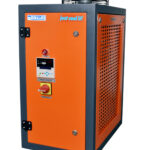
Refrigerated Air Dryer
Refrigerated air dryers remove excess moisture by cooling compressed air. The process prevents condensation-related issues in machinery. This improves performance and reduces
